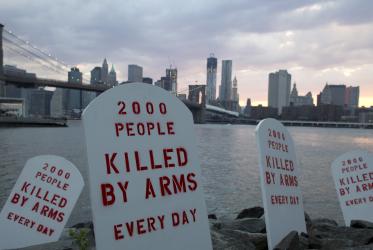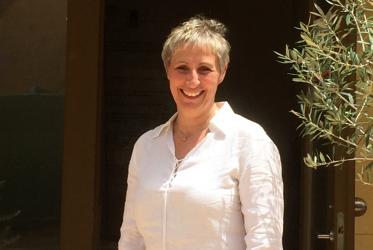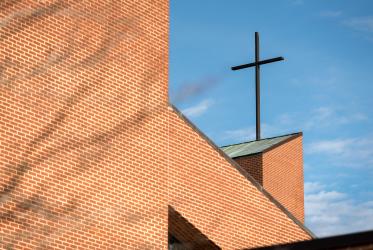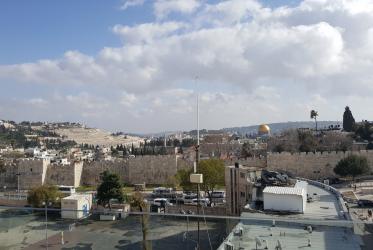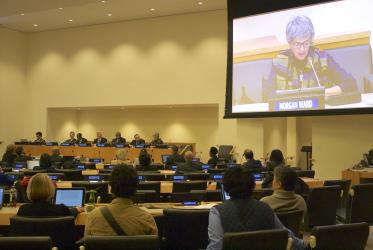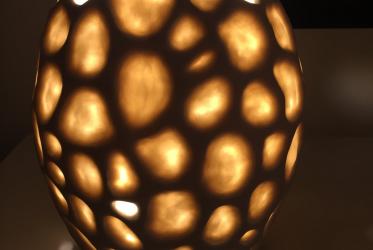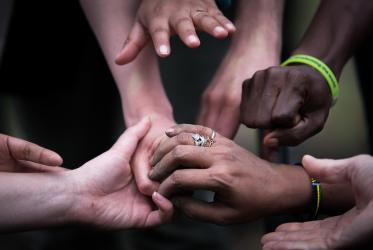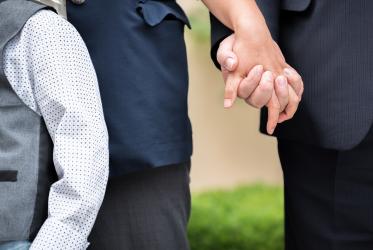Displaying 41 - 60 of 124
12 September 2019
WCC pressing ahead with disarmament work
28 August 2019
Peacemakers at work in Sri Lanka
29 April 2019
Roundtable for Peace on the Korean Peninsula convenes in Atlanta
14 November 2018
Racial justice issues at forefront in meetings with UN experts
01 November 2018
How can you help refugees?
11 October 2018
"Diversity" documentary reflects on maze of self-identity in Canada
27 September 2018
WCC statement welcomes hopeful turn in Korea
20 June 2018
